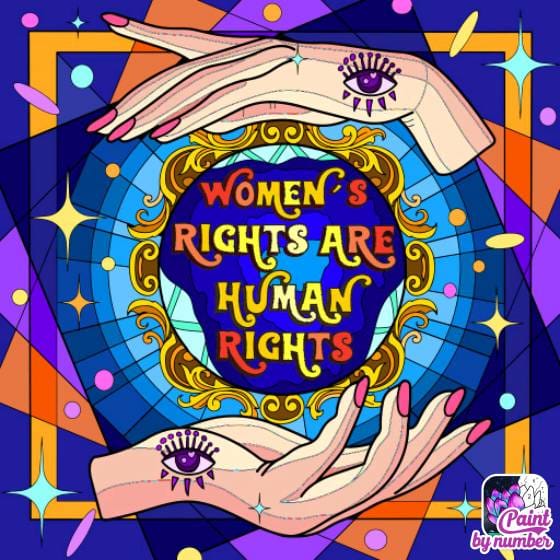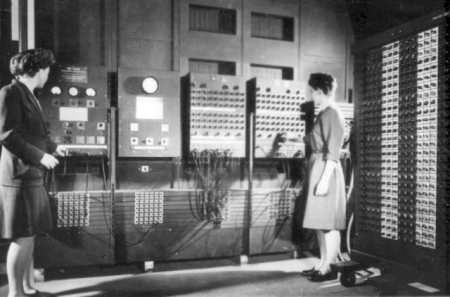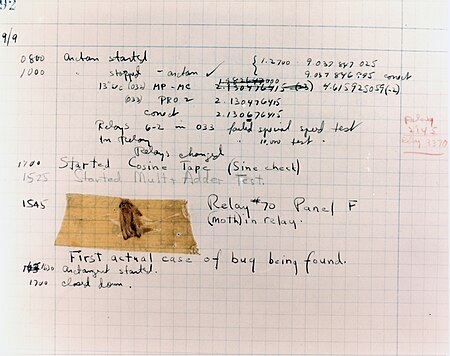Remembering our Women
 Ronica Singh
Ronica Singh
The Month of March is commemorated as Women's History Month, and the 8th of March is deemed International Women's Day. In that spirit, I write this article by remembering those of us before and those of us in the now. The two categories I'll touch on are Women in Space (Travel) and Women in Tech/Computing.
First, we'll start with Valentina Tereshkova - "A bird cannot fly with one wing only. Human space flight cannot develop any further without the active participation of women." Born March 6, 1937, Valentina was a Russian engineer, member of the State Duma, and former Soviet cosmonaut, she was the first woman in space, having flown a solo mission on the Vostok 6 on June 16, 1963. She orbited the Earth 48 times, spent almost three days in space, is the only woman to have been on a solo space mission, and is the last surviving Vostok programme cosmonaut.
Sally Kristen Ride - "If we want scientists and engineers in the future, we should be cultivating the girls as much as the boys." Born May 26, 1951, became the first American woman and the third woman to fly in space after cosmonauts Valentina Tereshkova in 1963 and Svetlana Savitskaya in 1982. She was the youngest American astronaut to have flown in space, having done so at the age of 32. In June 1983, Sally Ride flew in space aboard the Space Shuttle Challenger during the STS-7 mission, where she operated the robotic arm to deploy and retrieve SPAS-1 (Shuttle Pallet Satellite). Notably, she was the first astronaut known to be part of the LGBT community.
Liu Yang - "International cooperation is very necessary. Chinese have a saying, 'When all the people collect the wood, you will make a great fire.'" Born October 6, 2978, became the first Chinese woman in space on October 12, 2012, as part of the crew for the Shenzhou 9 mission. Liu is a Chinese military transport pilot and taikonaut - the term used for Chinese astronauts.
Mae Carol Jemison, first African American woman in space. Born October 17, 1956, she traveled into space when she served as a mission specialist aboard the Space Shuttle Endeavor in 1992.
In the 1940's, a group of female scientists were the human computers behind the biggest advances in aeronautics. Hidden Figures; The American Dream and the Untold Story of the Black Women Who Helped Win the Space Race, is a 2016 non-fiction book written by Margot Lee Shetterly, which is also now a movie, released as well in 2016.
The following are some notable excerpts from "The Guardian" article:
"While some of this generation of female black scientists were recognized - in 2015, Katherine Johnson was awarded the US's highest civilian honor, the Presidential medal of freedom for her work, which included calculations that helped the moon landing - the fact that there was a crack team of all-female, all-black maths whizzes is largely unknown."
"For a long time, African American's were not allowed to read and write," says Lee Shetterly. "We forget but it was not that long ago. Women were barred from studying at many colleges. If you are not able to read or write, then you are not going to be able to tell your own story. There haven't been critical masses of women, minorities, whatever, and I think that's something that is changing now."
"Lee Shetterly's book, and the story of how a group of African American women - transcending racism and sexism to embark on some of the most important scientific work in the world at the time - has been turned into a film, starring Octavia Spencer, Taraji P Henson and Janelle Monae."
Now, moving on to the Women in Technology. Historically, we all were taught in school about Charles Babbage, but there was no mention (not even in our Computer Studies textbooks) of Ada Lovelace. When I searched for the poets and authors we learned from English class, one of them was Lord Byron. From there, I found out that Ada Lovelace, rightfully known as Augusta Ada King, Countess of Lovelace, was the programming pioneer. Not only was she the only legitimate child of George Byron, the mad poet, she was an English mathematician and writer, who worked on Charles Babbage's proposed mechanical general-purpose computer, which we know as the Analytical Engine.
Ruth Leach Amonette was appointed as the first female executive and vice president at IBM in 1943.
This picture,

that we see in some of our programming books, these ladies are Jean Bartik and Frances Spence. They were two of the six original programmers for the ENIAC. Bartik studied mathematics and first manually calculating ballistics trajectories and then using ENIAC to do so. The content-management framework Drupal's default theme, Bartik, is named in her honor. Along with Bartik and Spence, the other four ENIAC programmers were Betty Holberton, Ruth Teitelbaum, Kathleen Antonelli and Marlyn Meltzer.
Grace Hopper, a name we know all too well, in reference to the origin of the coding bug,

Grace, another pioneer of computer programming, was the first to devise the theory of machine-independent programming languages, which eventually resulted in others to create COBOL, an early high-level programming language still in use even today. Grace Hopper was a computer scientist, a mathematician, and a United States Navy Rear Admiral.
While there are too many great women to speak of, I've just touched on a few, you are free to explore more here: https://en.wikipedia.org/wiki/Timeline_of_women_in_computing. I plan to use this and more on the History of Technology into a quiz mobile game, as a pet project of mine.
Going a little further down history towards our century.
Annie Easley, an African American computer scientist, made critical contributions to NASA's rocket systems and energy technologies over her 34-year career. However, she faced heavy adversity throughout her career, as a black female in America during the 1950s, she was underrepresented and disregarded. Despite these barriers, Easley demonstrated perseverance and determination to make a name for herself in a line of work dominated by males. She taught herself assembly programming using languages like Fortran (FORmula TRANslating System) and SOAP (Simple Object Access Protocol).
Kateryna Lohvynivna Yushchenko, was a Soviet Ukrainian computer and information research scientist. She developed one of the world's first high-level languages with indirect address in programming (pointers are analogous to this address), called Address (programming language). Yushchenko worked on probability theory, algorithmic languages, and programming languages, and developing methods of automated data processing systems. To prepare programmers, she wrote an educational series of textbooks in the 1970s.
Nancy Jane Hafkin, is a pioneer of networking and development information and electronic communications in Africa. She played a role in facilitating the Association for Progressive Communications work to enable email connectivity in more than 10 countries during the early 1980s before full Internet connectivity became a reality in most of Africa.
Barbara Liskov, as an American computer scientist, introduced abstract data types and the accompanying principle of data abstraction, along with the Liskov Substitution principle, which applies these ideas to object-oriented programming, subtyping, and inheritance. She was the second woman to receive a Turing award in 2008 in recognition of her work.
Anne-Marie Imafidon, at age 11 was the youngest girl to pass an 'A'-level in Computing and was only 20 when she passed a Master's degree in Maths & Computer Science. With a passion for STEM, she co-founded STEMettes, a programme to inspire young women in Science, Technology, Engineering, and Maths!
Carrie Anne Philbin as a computing teacher wrote her best seller on using physical computing, Adventures in Pi, and was an early YouTube channel sensation with her Geek Gurl diaries.
Christine Farion's research on forgetfulness has resulted in some beautiful and very useful products which use embedded sensors. Using shop scanners to check what has been popped in your bag, a tiny light displays whether you have remembered your keys.
Cynthia Bennet's goal was to make sure that technology can be accessed by everyone. Her research area is Human-Computer Interaction but with a focus on assistive technology for those with disabilities.
Dorcas Muthoni, a Kenyan entrepreneur and computer scientist, is in the top 100 Lionesses, a list of the top African Women Entrepreneurs. Not only does she run a highly successful tech firm she is a fierce advocate for Women in Tech. She set up AfChix which is a chapter of LinuxChix.
Holly Kay, a deaf developer found pair programming a challenge, and came up with a solution to help develop an accessibility tool for everyone, Pa11y. [Personally, I'd like to know more about this and similar accessibility tools.]
Juliana Rotich, a Kenyan IT professional, developed web tools for crowdsourcing crisis information and coverage of topics related to the environment. She is also the co-founder of iHub, a collective tech space in Nairobi, Kenya.
Kimberly Bryant founded Black Girls Code, an organization focusing on gender and race as overlapping social identities, the educational group teaches 6-17 year old girls from underrepresented communities skills in computer programming and technology.
I will end off my long article by mentioning three African women who inspire me today.
Wendi Ndaki, an entrepreneur, primarily offering writing services. Her articles inspires me because she writes about other African game makers and artists, those that other people/organizations don't take notice of. A plus for her, is she is a great artist, check out her website.
Clare Tracy Louise, the studio head and owner of Katanimate Animation Studio. When I first met Clare, I was in awe that we even have an animated TV shows made right here in Durban. Katanimate mainly takes care of the look, feel and direction of animated TV shows, of which they are currently working on a few right now.
Nafeesa Alibedi, founder of Creative Tech Solutions, and a recent Organizer Lead Google Developer Group, specializes in all things Data Science. Her startup focuses on education through coding and robotics.
I asked these three wonderful ladies a few questions, and the following are their responses:
What gave you this initial spark to enter this industry?
WN: My mentor, Ng'endo Mukii, played a pivotal role in guiding me into this field. Not only did she provide valuable mentorship, but she also pointed me towards Enter Africa the gamification project at Goethe Institute after learning about my interest in games during our conversations. However, even before that, I had already learned touch typing through a gamified software called Mavis Beacon, which proved to be an invaluable skill for my writing journey. Initially drawn to the world of animations, I sought to intern at Ng'endo Studios due to my passion for animation. Witnessing Ng'endo's remarkable achievements, including her recent Annie's Award win, inspires me, and serving her as a marketer allowed me to observe her exceptional work ethic firsthand. It was through Ng'endo's recommendation that I seized an opportunity with the Enter Africa program, which marked the beginning of my focus on writing about the video games industry. Initially, my articles centered around artists, art, and tech events. They have gradually evolved to specifically highlight the vibrant world of African video games. You can read more about how I got into the industry here: https://www.wendiartit.com/2020/03/8-interesting-ways-to-remind-yourself.html (It is better read on a laptop I will be revamping my website soon 😊 )
CL: It was while working on cruise ships and doing world cruises that I got the idea to start visiting animation or visual effects studios in all the countries we visited. Seeing different ways of doing what I loved, so when I returned to South Africa, I did a MA in 3D Animation at WITS, started working for a live-action production studio as the post-production supervisor in Johannesburg. It was a great learning experience but I wanted to make an animated TV series, not work in live action. It's what I loved, so when I returned home to Durban after some years in Johannesburg, I had to start my own studio because no one was doing long-form 3D animation in Durban at the time.
NA: The initial spark that drove me into the tech industry was my fascination with data science and its pervasive impact on our daily lives. I was captivated by the power of data to uncover insights, solve complex problems, and drive innovation across various domains. Witnessing how data-driven technologies revolutionize industries and enhance decision-making processes inspired me to delve deeper into this field. The potential to leverage data science to address real-world challenges and contribute to meaningful advancements ignited my passion for pursuing a career in technology.
What is the most exciting project you've worked on to date?
WN: I am currently excited about interviewing and sharing stories of incredible individuals in the African video games industry as a contributing writer at PreMortem Games. It's an honor to document their journey.
CL: It's this one we're working on now called "Knittyville. It went from an abstract concept in my head, all the way through funding applications, then story development, guiding the look and feel from visual development to now figuring out the sounds/voices and overall feel of the show. It's really exciting cos it will be the first animated TV show to come out of KZN.
NA: One of the most exciting projects I've worked on is the iBus smart commute project. This innovative initiative aimed to revolutionize public transportation by implementing smart technologies to enhance the commuting experience. I was involved in developing a mobile application that provided real-time updates on bus schedules, routes, and passenger loads, allowing commuters to plan their journeys more efficiently. Additionally, we integrated smart sensors and IoT devices into buses to optimize routes and reduce congestion. The project not only challenged me to apply my technical skills but also allowed me to contribute to improving urban mobility and enhancing the quality of life for commuters.
What advice would you give to young professionals starting in tech?
WN: Be patient with yourself the tech world is always evolving. You don't have to know it all. Just focus on what excites you and it will be easier to keep up.
CL: My advice to young people wanting to start in tech would be to just do it. Get yourself a decent enough laptop. Nowadays you don't have to wait to go to a school or tertiary institution to start learning, you can follow along on YouTube and figure out which aspect of tech you like. The thing is if you want to go overseas -because South Africans are very in demand- be sure to get yourself an education. Find out which institution does what you want to do, learn about the bursary system. You will need that qualification later in your life. Check, check, check so you don't sign up for the wrong field or qualification. There are many people who will help you.
NA: For young professionals starting in tech, I would emphasize the importance of self-discipline and continuous learning. Technology is constantly evolving, so staying updated with the latest trends and advancements is essential. Additionally, seeking out a mentor can provide invaluable guidance and support as you navigate your career path. Don't be afraid to ask questions, take on new challenges, and embrace failure as an opportunity to learn and grow. Remember to network with peers and professionals in the industry, as building connections can open doors to new opportunities and collaborations. Stay curious, stay humble, and never stop exploring your potential in the vast world of technology.
Thank you very much for taking the time to read this rather long article. I'll end off with one last note, I'm an inspiring Astronomer, rather a hobbyist Astronomer, and through my research, I'm sad to say that there was no mention of any African (not African American), people let alone women that have ever gone into space, yet!
Subscribe to my newsletter
Read articles from Ronica Singh directly inside your inbox. Subscribe to the newsletter, and don't miss out.
Written by

Ronica Singh
Ronica Singh
I am a Software/Web Developer from Durban, South Africa. I have been interested in web development for many as I saw that as a growing technology that will never end. My interests expanded to Game development when I learned that I can make games with HTML5 Canvas. I love coding games more than drag and drop features. I can't remember what got me interested in making games. I love teaching others programming, web skills and more about making games, that is game development and game design. I am now teamed up with a woman in Nigeria, actually from Benin, to start our own gaming studio and make games for change. Our first in our games production will be a series of games teaching players about climate change and how we can help improve the circumstances we find ourselves in.